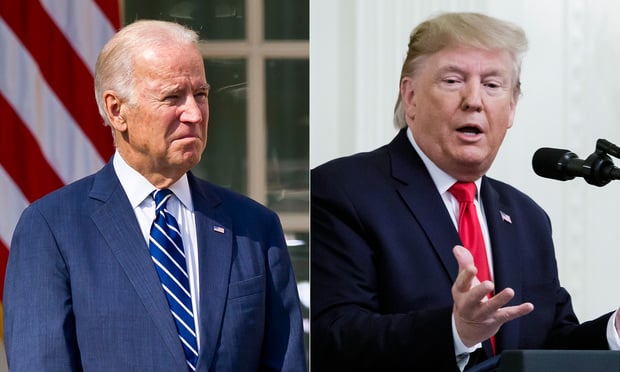 A flurry of proposed lawmakingcould add momentum to one of the few policy areas in which HouseDemocrats, Senate Republicans and the White House may be able tofind common ground. (Image: Shutterstock)
A flurry of proposed lawmakingcould add momentum to one of the few policy areas in which HouseDemocrats, Senate Republicans and the White House may be able tofind common ground. (Image: Shutterstock)
The next presidential primary contests are more than a yearaway. But presumed candidates are already trying to stake a claimto one of health care's hot-button concerns: surging prescription drug prices.
|“This is a 2020 thing,” said Dr. Peter Bach, who directs theCenter for Health Policy and Outcomes at Memorial Sloan KetteringCancer Center in New York and tracks drug-pricing policy.
|Spurred on by midterm election results that showed healthcare to be a deciding issue, lawmakers — some of whom havealready launched presidential run exploratory committees — arepushing a bevy of new proposals and approaches.
|Related: Few voters believe Trump will lower drugprices
|Few if any of those ideas will likely make it to the president'sdesk. Nevertheless, Senate Democrats eyeing higher office andseeking street cred in the debate are devising more innovative andaggressive strategies to take on Big Pharma.
|“Democrats feel as if they're really able to experiment,” saidRachel Sachs, an associate law professor at Washington Universityin St. Louis who tracks drug-pricing laws.
|Some Republicans are also proposing drug-pricing reform,although experts say their approaches are generally lessdramatic.
|Here are some of the ideas either introduced in legislation orthat senators' offices confirmed they are considering.
- Make a public option for generic drugs. Thegovernment could manufacture generics (directly or through aprivate contractor) if there is a shortage or aren't enoughcompetitors to keep prices down. This comes from a bill put forthby Sen. Elizabeth Warren (D-Mass.) and Rep. Jan Schakowsky(D-Ill.).
- Let Medicare negotiate drug prices. This ideahas many backers — what differs is the method of enforcement. Sen.Sherrod Brown (D-Ohio) has suggested that if the company and thegovernment can't reach an agreement, the government could take awaythe company's patent rights. A proposal from Sen. Bernie Sanders(I-Vt.) and Rep. Elijah Cummings (D-Md.) would address stallednegotiations by letting Medicare pay the lowest amount among:Medicaid's best price, the highest price a single federal purchaserpays or the median price paid for a specific drug in France, theUnited Kingdom, Germany, Japan and Canada.
- Pay what they do abroad. Legislation fromSanders and Rep. Ro Khanna (D-Calif.) would require companies toprice their drugs no higher than the median of what's charged inGermany, Japan, France, the United Kingdom and Canada. Ifmanufacturers fail to comply, other companies could get the rightsto make those drugs, too.
- Penalize price-gouging. This would targetmanufacturers who raise drug prices more than 30 percent in fiveyears. Punishments could include requiring the company to reimbursethose who paid the elevated price, forcing the drugmaker to lowerits price, or charging a penalty up to three times what a companyreceived from boosting the price. Backers include Sens. RichardBlumenthal (D-Conn.), Kamala Harris (D-Calif.), Jeff Merkley(D-Ore.) and Amy Klobuchar (D-Minn.).
- Import drugs. A Sanders-Cummings bill wouldlet patients, wholesalers and pharmacies import drugs from abroad —starting with Canada, and leaving the door open for some othercountries. Sen. Chuck Grassley (R-Iowa) and Klobuchar have aseparate bill that is specific to patients getting medicine fromCanada alone. Abolish “pay-for-delay.” From Grassley and Klobuchar,this legislation would tackle deals in which a branded drugmakerpays off a generic one to keep a competing product from coming tomarket.
This flurry of proposed lawmaking could add momentum to one ofthe few policy areas in which conventional Washington wisdomsuggests House Democrats, Senate Republicans and the White Housemay be able to find common ground.
|“Everything is up in the air and anything is possible,” said Dr.Walid Gellad, co-director of the Center for Pharmaceutical Policyand Prescribing at the University of Pittsburgh. “There are thingsthat can happen that maybe weren't going to happen before.”
|And there's political pressure. Polls consistently suggest voters have a strong appetite for action. As acandidate, President Donald Trump vowed to make drug prices a toppriority. In recent months, the administration has taken steps inthis direction, like testing changes to Medicare that might reduceout-of-pocket drug costs. But Congress has been relatively quiet,especially when it comes to challenging the pharmaceuticalindustry, which remains one of Capitol Hill's most potent lobbying forces.
|One aspect of prescription drug pricing that could seebipartisan action is insulin prices,which have skyrocketed, stoking widespread outcry and could be a target for bipartisan work.Warren's legislation singles out the drug as one the governmentcould produce, and Cummings has already called in major insulin manufacturers for adrug-pricing hearing later this month. In addition, Rep. DianaDeGette (D-Colo.), the new chair of the House Energy and CommerceOversight and Investigations Subcommittee, has listed prescriptiondrug pricing as a high priority for her panel. As co-chair of theCongressional Diabetes Caucus, DeGette worked with Tom Reed(R-N.Y.) to produce a report on the high cost of insulin.
|To be sure, some of the concepts, such as drug importation andbolstering development of generic drugs, have been around a longtime. But some of the legislation at hand suggests a new kind ofthinking.
|House Speaker Nancy Pelosi (D-Calif.) has labeled drug pricing a top priority, and the pharmaceuticalindustry has been bracing for a fight with the new Democraticmajority.
|Meanwhile, in the GOP-controlled Senate, two powerful lawmakers— Sen. Lamar Alexander (R-Tenn.) and Grassley — have indicated theywant to use their influence to tackle the issue. Alexander, whochairs the Health, Education, Labor and Pensions Committee, hassaid cutting health care costs, including drug prices, will be highon his panel's to-do list this Congress. Grassley runs the FinanceCommittee, which oversees pricing issues for Medicare andMedicaid.
|“The solution to high drug prices is not just having thegovernment spending more money. … You need to look at prices,”Gellad said. “These proposals deal with price. They all directlyaffect price.”
|Given the drug industry's full-throated opposition to virtuallyany pricing legislation, Sachs said, “it is not at all surprisingto me to see the Democrats start exploring some of these moreradical proposals.”
|Still, though, Senate staffers almost uniformly argued that thedrug-pricing issue requires more than one single piece oflegislation.
|For instance, the price-gouging penalty spearheaded byBlumenthal doesn't stop drugs from having high initial list prices.Letting Medicare negotiate doesn't mean people covered by otherplans will necessarily see the same savings. Empowering thegovernment to produce competing drugs doesn't promise to keepprices down long term and doesn't guarantee that patients will seethose savings.
|“We need to use every tool available to bring down drug pricesand improve competition,” said an aide in Warren's office.
|KHN's coverage of prescription drug development, costs andpricing is supported in part by the Laura and John ArnoldFoundation.
|Kaiser HealthNews (KHN) is a national health policy news service. It is aneditorially independent program of the Henry J. Kaiser Family Foundation whichis not affiliated with Kaiser Permanente.
|Read more:
Complete your profile to continue reading and get FREE access to BenefitsPRO, part of your ALM digital membership.
Your access to unlimited BenefitsPRO content isn’t changing.
Once you are an ALM digital member, you’ll receive:
- Critical BenefitsPRO information including cutting edge post-reform success strategies, access to educational webcasts and videos, resources from industry leaders, and informative Newsletters.
- Exclusive discounts on ALM, BenefitsPRO magazine and BenefitsPRO.com events
- Access to other award-winning ALM websites including ThinkAdvisor.com and Law.com
Already have an account? Sign In
© 2024 ALM Global, LLC, All Rights Reserved. Request academic re-use from www.copyright.com. All other uses, submit a request to [email protected]. For more information visit Asset & Logo Licensing.








